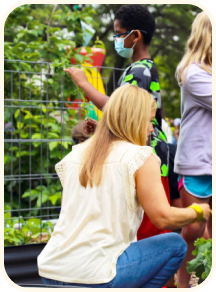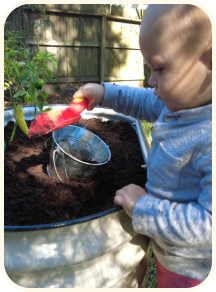Winter Floral Arrangements Tips and Themes
Floral arrangements have long served as a bittersweet remembrance of the ephemeral transience of beauty, the flowers living on as a delicate framework long after the scent has dissipated.
Yet there is reassurance in a crisp, gathered display of blooms. Whether as a focal point on a dinner table or in small bunches along the windowsill, winter flowers lend a personal touch of warmth to the home when all else has wilted.
Tips for combining floral bouquets
The personification of winter conjures an image of a small, pale man in funeral formal. It’s easy to become bombarded by a feeling of lethargy during the winter months, and though there’s no quick solution to the problem, flowers can bring a temporary respite.
Monochrome color palettes may reign, but that doesn’t mean that your household décor needs to suffer the blues. Add red blooms to evoke a festive atmosphere or opt for darker hued flowers for a more neutral display.
Emphasize elegance
Winter is an understated season, alternating between the frigid chill of January and the pale bloom of springtime. In accordance, floral arrangements should verge on the side of moderation. Avoid gaudy and garish colors – the tone should be less Renaissance runway and more Old World formal. Even brightly colored flowers work best when on the rustic side.
Experiment with exotic-colored or white roses

The color of priestly vestments, the color of fireside embers, red has always been an iconic color. The red rose has become a perfunctory gesture at Valentine’s Day, but not all prefer the vibrant color. White roses, mirroring the fresh snow of first frost, provide lovely winter décor, especially for a rustic tableside. When paired with holly, they form an eye-catching display – the cascading holly berries mesh well with the rotund rose petals.
Prune flowers with a hori hori knife

Some flowers are naturally long-lived, but with these tips, you can extend the life of cut flowers in bouquets. One way is to prune the stems by cutting at an angle of no more than 45 degrees. Sometimes, it can be difficult to make a clean incision when it comes to thorny and tough stems. A hori hori knife is an excellent tool for pruning stems or dividing perennials.
Support local florist shops
While it’s common to yearn for exotic flowers, it’s more pragmatic to choose blooms that are in season. To further support eco-friendly practices and reduce your carbon footprint, look for small businesses who offer locally cultivated blooms instead of purchasing them online.
Opt for unconventional displays

Floral arrangements don’t have to be limited to wreaths or bouquets. Some gardeners have chosen to display their flowers using unconventional means: under glass cloches, in DIY greenhouse cabinets, or indoor terrariums. In general, glass cloches are used to display preserved flowers while greenhouse cabinets are intended to showcase a collection of living plants. Many of those trends have Victorian origins, making it perfect for lovers of antique décor or connoisseurs of the Victorian gothic.
Unique indoor floral design ideas and themes
Floral bouquets are often reserved for formal occasions, but the art of floral design should be celebrated whenever. Often viewed as a faded art, in certain circles, floristry is very much alive. Whether you decide to purchase a polished arrangement or create one of your own, let your imagination run wild.
Birthstone collection floral arrangement

From an eclectic and carefree jug of wildflowers to an heirloom vase of Old-World flowers, the color purple has always been favored. February’s birthstone is amethyst, so it’s only fitting that you dress up your table with some purples. Mix the understated color of lilac sweet peas with periwinkle chrysanthemums, or juxtapose with crimson dahlias and irises for a fiery composition. Choose vibrant reds for January’s birthstone, garnet; pale blues to mirror the color of aquamarine, the birthstone of March.
Winter goth floral arrangement

If you’re like Wednesday Addams, then you eschew vibrantly colored things and Valentine’s Day with a vengeance. Or maybe you simply admire the tenebrous prose of Lovecraft or the macabre beauty of the Victorian gothic. Whatever the case, the darker shades of oxblood ranunculus and hellebores lend a tempered tone to the passionate red of today.
Singular floral arrangement
Sometimes, there’s comfort in singularity, and the simple arrangement of a statement piece can still turn heads. A canopy of white flowers laden on branches may seem simple, but when placed in front of a living room table, it can impart a striking elegance. Tufted ornamental grasses and long-stalked blooms in warm pastels are preferred; when offset against a simple elongated vase, they really pop.
Night-blooming flowers arrangement
A moonlit garden of night-blooming flowers is beautiful, but not very practical for those living in harsh environment conditions. However, white flowers and silver or variegated foliage can evoke the same feel of a garden bathed in moonlight. White flowers such as amaryllis and white orchids (Dendrobium nobile) add a melancholic, calming effect reminiscent of night gardens. Complement white hyacinths with Dusty Miller and silver brunia to capture the eternal beauty of moonlight. For a more springtime look, decorate tall vases with paperwhite narcissus at the dinner table.
Dried florals
Preserved florals are often viewed as a bygone relic, a memento mori once fashionable in the adobes of the wealthy. Yet, they are recently in vogue after a surging interest in all things vintage. Their popularity in pressed stickers and glass cloche displays are a testament that dried florals need not appear outdated. At its simplest, cotton tufts on branches can bring a whimsical touch to a traditional arrangement. Even simple arrangements of dried ornamental grasses can add flair to a drab white wall or dead space in the house.





























Leave a comment